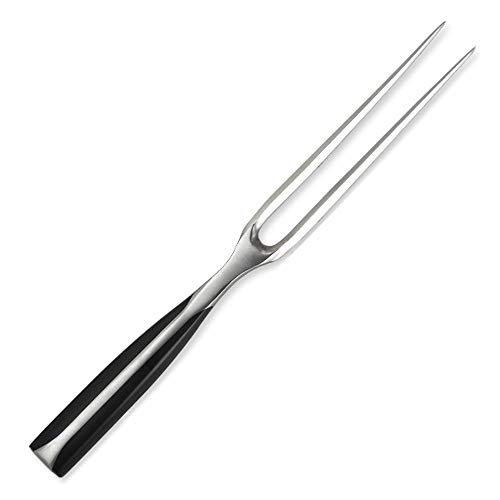The Importance of Choosing the Right Carving Fork Material
Carving meat is an art and to achieve the perfect slice, you need an equally perfect carving fork. A carving fork serves as a helpful aid in stabilizing the meat while you slice it. Since they are put to the test in the kitchen often, it’s safe to say that they take a lot of wear and tear, so choosing the right carving fork material is essential. Here’s everything you need to know to make an informed decision.
Stainless Steel Forks- A Dependable Choice
Stainless steel carving forks are a classic and dependable option for any meat carving needs. They’re easy to clean, resist rust and corrosion, and do not decay over time. They’re also usually dishwasher safe. If you’re on a budget, you can opt for a forged stainless steel carving fork. They’re sturdy and can last for years, so they’re a great value for money.
Carbon Steel Forks- Sharp and Durable
Carbon steel carving forks are popular among professional cooks who prioritize performance over price. They’re usually crafted from a specific blend of iron and carbon that makes them exceptionally sharp and durable. They come in either a stamped or forged variety, and the forged ones tend to be more robust. However, their downside is that they’re susceptible to rust and corrosion if not correctly cared for.
Ceramic Forks- A Stylish Choice
If you’re looking for a carving fork that’s both stylish and practical, a ceramic fork is your best bet. Ceramic is not only visually appealing, but it’s also an incredibly tough material thanks to its density. However, when compared to steel carving forks, ceramics tend to be more brittle and can break if dropped. Ceramic forks are also challenging to sharpen, so if it dulls, you may have to get a new one.
Titanium Forks- Light and Durable
Titanium carving forks are the perfect option for people who want something that’s both light and durable. They’re highly resistant to corrosion, scratch-resistant, and won’t transfer any metallic taste to your food. Since they’re naturally non-stick, they’re a breeze to clean. However, titanium forks can be expensive compared to other materials.
Ultimately, choosing the right carving fork material is a personal choice based on functionality, aesthetics, and budget. Stainless steel is a reliable and inexpensive option that’s easy to care for, while carbon steel is perfect for those who need a sharp and sturdy fork. Ceramic and titanium carving forks are ideal for people who prioritize aesthetics and durability, respectively.






